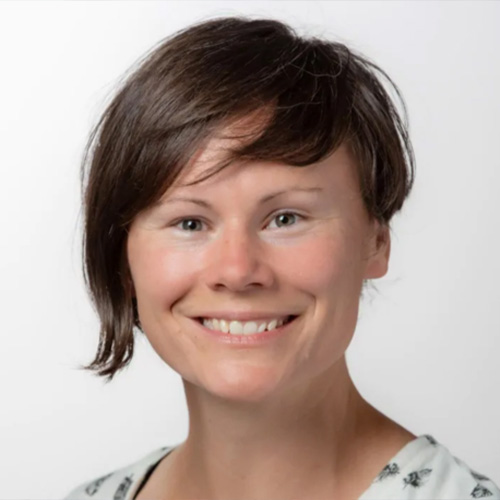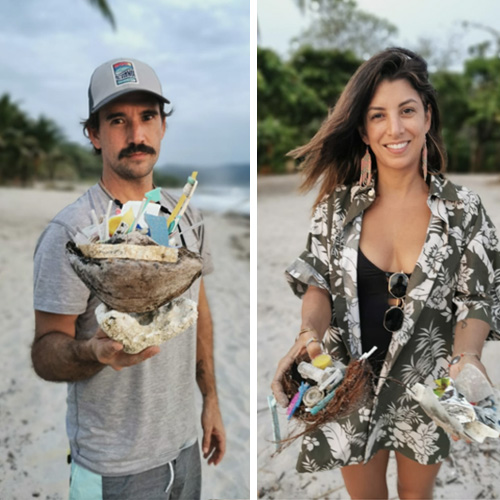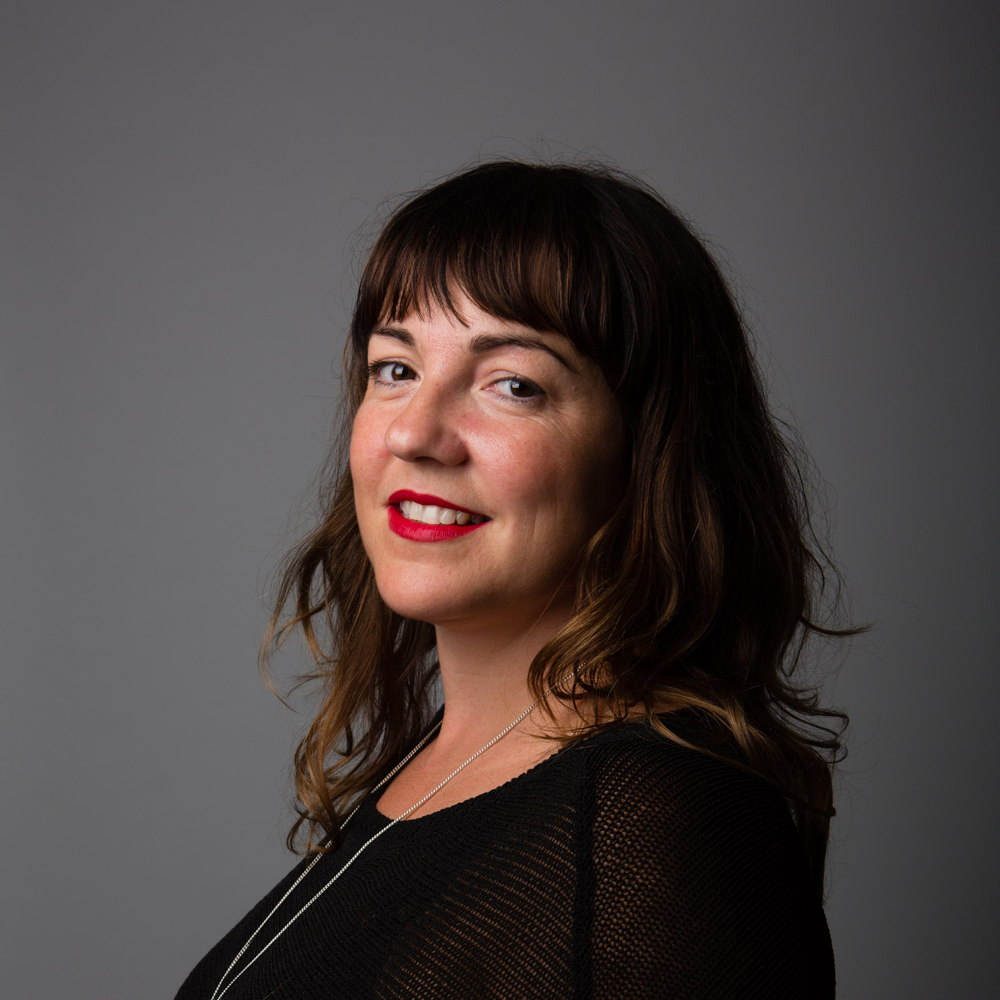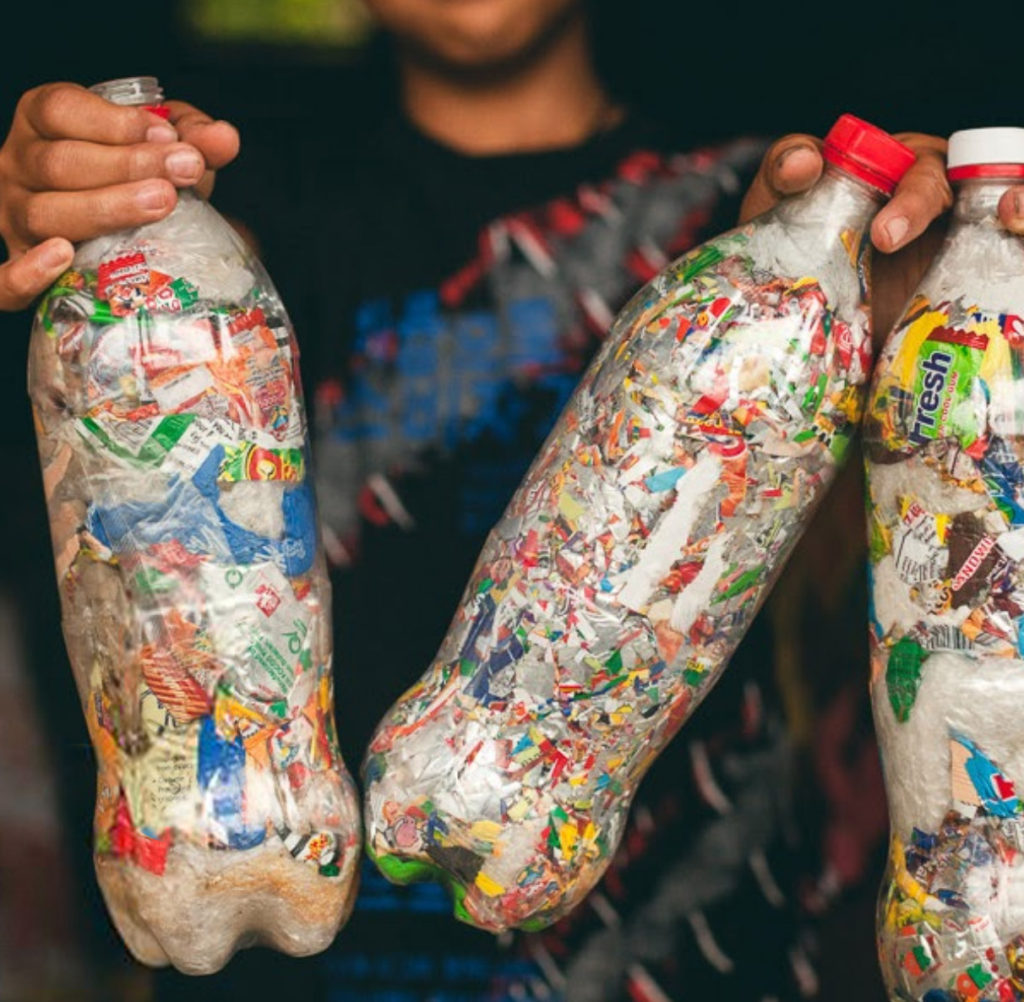AdaPETation talks to Bohio Playa, a Colombian fashion brand that’s doing its bit to turn plastic bottles into ocean-friendly beachwear.
When Daniel Velásquez took his first tentative steps on their journey into fashion in 2015 he had no idea how fulfilling the voyage would be. What first started out as an effort to find an identity for his eclectic band, La Fragua Band, has evolved into a deep dive into sustainable fashion with a purpose that’s more thrilling than rock ‘n roll.
Since he founded the project – later persuading his brother Juan Camilo to join him on the quest in 2018 – the Medellin-based brand has up-cycled 55,000 PET plastic bottles mixing the nylon yarns of Colombian recycling multinational Enka with recycled cotton to make its striking floral designs. Made with a mix of 52% recycled PET and 48% recycled cotton their colorful designs are 100% ecological.
Each shirt, or pair of Bermuda shorts recycle five PET plastic bottles, helping repurpose a small part of the 480 billion bottles produced each year. Thanks to a collection of eco-conscious clients like Bohio Playa, ENKA estimates that it has converted 7 billion bottles into its diverse range of recycled products since it was formed in 1964.
Bohio Playa’s transition to a triple bottom line company started three years into the brothers’ journey, after the company had graduated in the world of fashion and they found themselves questioning how paradoxically, the industry was one of the worst offenders in the mounting problem of plastic pollution in the place that had first inspired their line of tropical beach wear, i.e. the beach.
“We started to question ourselves. It doesn’t make sense that if we are a brand that’s inspired by the beach, by the ocean and the sea that we have products that could contaminate the source of our inspiration,” says Juan Camilo Velasquez. “The textile industry is one of the most polluting industries in the world so we found a contradiction there. We started to investigate and we found a supplier – ENKA de Colombia – that was producing fabric by recycling PET bottles. They are a pioneer in this and it was them that inspired us to move in that direction.”
It was only after the discovery of Enka’s sustainable fibers that Bohio Playa started to realize that their venture could in fact become part of the solution, rather than part of the problem.
Closing the Loop
“The use of recycled cotton and PET also helps reduce the amount of water used to produce each shirt by 2,500 liters for each shirt which is what the industry would normally use to make each shirt,” says Velasquez. “We also save energy and take 0.5 meters of fabric out of the textile industry by recycling them.”
Since Bohio Playa found its sustainability mojo, Colombian celebrities like singer Juanes, Vicente García y Juan Pablo Vega and comedian Alejandro Riaño, have all thrown their weight behind the brand supporting its healthy vision of slow and regenerative fashion.
The company hasn’t looked back since, and continues to drill into its mission to redress other negative characteristics of the fashion industry. It comes at a price with the recycled materials pushing up the cost of its garments but far from being an issue with consumers it’s helped them position Bohio Playa in an ultra-competitive field.
“From the concept of the brand we’re not a brand that’s looking to compete on cost. We’re a company that we think in creating a competitive advantage through adding value and innovation,” says Velasquez. “It’s a little bit more expensive to use these raw materials but we believe that we can communicate this to the final consumer and it becomes an issue of conscience. Rather than selling a product we’re selling a lifestyle, a lifestyle that’s more conscious, more sustainable, a lifestyle that’s more tranquil, good in all aspects, mental and physical.”
“Everything we produce has been well received and sells out very quickly. I think consumers are thinking more and more how to leave their mark and contribute to environmental sustainability and to support companies that are local, that are doing things differently. More than looking just at profitability, companies that are looking more at how they can help build better communities and a stronger collective,” says Velasquez.
As well as its sustainability credentials converting plastic bottles into clothing, the company offers opportunities to senior citizens to re-enter the workforce, a lifeline for some who were discarded by Colombia’s textile industry as it became fully automated in the late 20th century.
“Through globalization people have started to realize, industrialists also, that the most affordable raw materials often hide terrible working conditions and unsustainable salaries, modern-day slavery,” he says.
“Made by grandma” is the slogan that celebrates the company’s preference for employing senior citizens and single mothers, underscoring the positive impact Bohio Playa has and continues to have on its local network of suppliers and partners. Their commitment to social inclusion also stretches to employing delivery drivers with disabilities working with a fleet of electric vehicles.
The company is already exporting its success to nearby countries in Central America, Panama and Guatemala and building relationships with new distributors further afield and they’re always on the lookout for new partners that want to help spread their good vibes.
THE HISTORY OF PLASTIC
Throughout the history of plastic, PET has been crucial in keeping food fresh with lightweight and durable packaging solutions that have helped reduce food waste for almost a century. Learn all about the invention of plastic and the important role it has played feeding people and saving the lives of humans and elephants in the adaPETation® timeline of the history of plastic.





